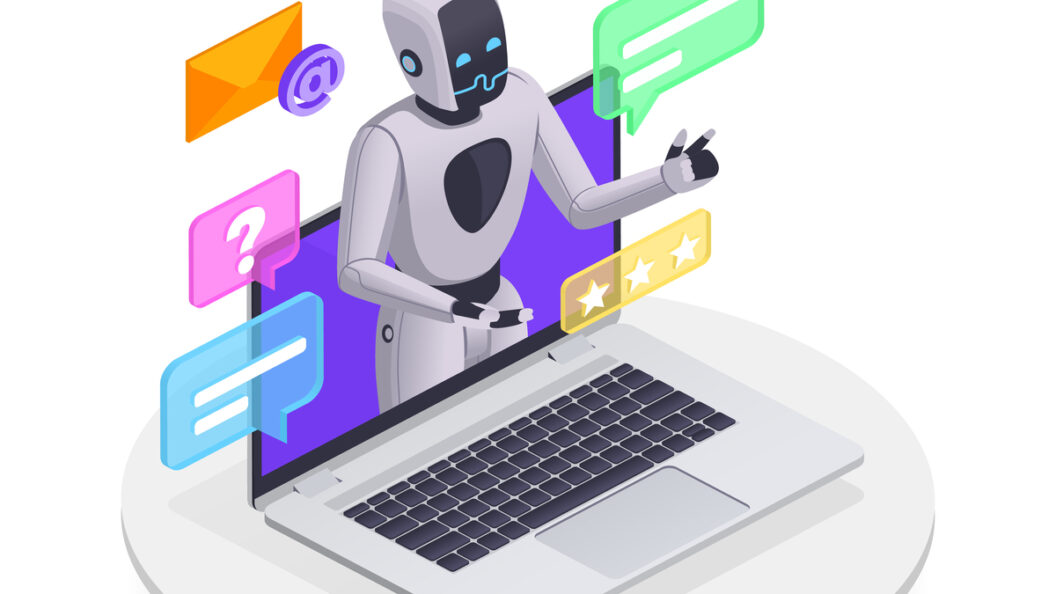In the beginning, there was ChatGPT, and the rest is history. Now it seems every marketer (secretly or openly) wants a piece of the AI cake.
We all want to know how AI can make our jobs easier, so we can finally have time to create those podcasts… and stop saying no to weekend invites.
Well, it turns out AI can do more than spit out garbage content. Here, we’ll cover some of the most realistic use cases for AI, exemplary tools, and how it can be used in your marketing strategy.
Table of Contents
- What is AI Marketing?
- Will AI Become a Key Player in Marketing?
- Valuable use cases of AI in Marketing
- Benefits of AI in Marketing
- Cons of AI in Marketing
- How to Use AI in Your Marketing Strategy
What is AI Marketing?
AI marketing involves using artificial intelligence to enhance various aspects of your marketing strategy. It’s like having a super-smart (and fast) assistant to help you blitz through the less creative tasks.
Whether it’s generating first drafts with AI prompts, optimizing ad placements, or predicting customer behaviors, AI can be a weapon in your marketing toolkit.
Will AI Become a Key Player in Marketing?
AI isn’t just knocking on the door of marketing; it’s already inside, rearranging the furniture.
If you aren’t already using it for content creation, you’re late to the party. Many marketers are already. Superpath’s 2023 content marketing report paints an unambiguous picture:
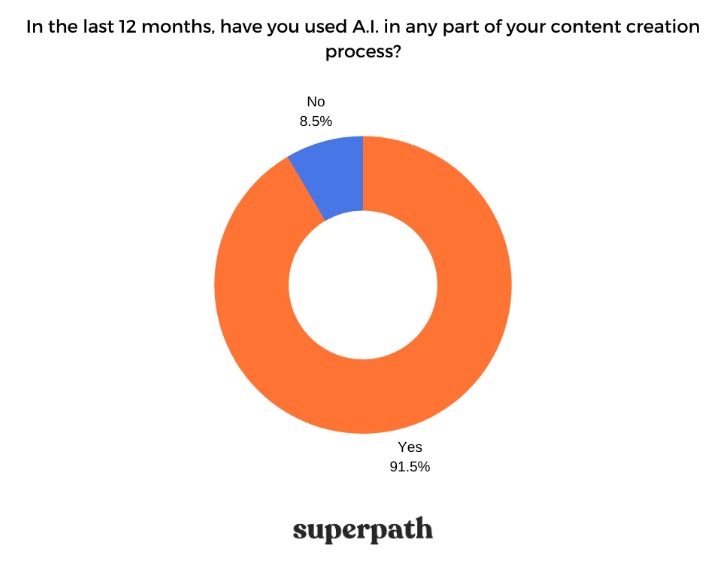
According to the same report, 57.2% of marketers considered replacing their resources with AI.
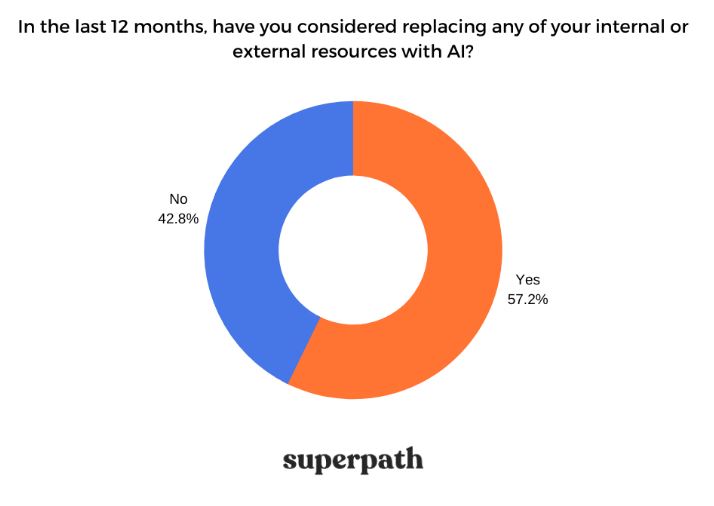
The question isn’t whether AI will become a key player—it is going to. The question is how far marketers will continue to exploit AI to free their workload—namely, just how good can AI tools get at helping marketers do their job?
Knowing how marketers are currently using AI tools can help answer this question.
Valuable use cases of AI in Marketing
Customer Segmentation
AI can take the guesswork out of understanding your audience.
Let’s say you’re running an online store. AI can analyze your customers’ purchase history, website visits, and interactions. It then groups them into segments based on their preferences.
AI has done part of the work by helping you identify rich customer segments. All you have to do is tailor specific campaigns for specific segments. There are already AI tools for customer segmentation. Notable examples include Optimove and Peak.AI.
Predictive Analytics
There are AI-powered tools that can help organize and interpret user data.
Let’s stick with the online store example. AI digs into your data to find patterns. If, historically, certain products sell like hotcakes during the holiday season, AI picks up on this. It then predicts future trends, helping you stock up on those items, ensuring you’re ready for the surge in demand.
It’s like knowing tomorrow’s weather but for your sales. Used by business analysts, marketers, and enterprise data scientists, RapidMiner and Microsoft Azure are some of the most powerful AI-powered predictive analytics tools on the market.
Chatbots and Virtual Assistants:
Ever visited a website and saw a friendly chat window pop up asking if you needed help? 6 times out of 10, it’s not a person but an AI-powered chatbot.
For instance, a user on a travel website, wondering about flight options, encounters a chatbot. The chatbot instantly provides details, answers queries, and even helps the user book. It’s quick, efficient, and available 24/7.
AI chatbots are not new. Most are customizable, while some are tailored for specific job departments and industries. Popular AI chatbot providers include Zendesk and HubSpot.
Email Marketing Optimization
Sending out emails is easy; getting people to open and engage is the challenge. AI can help in this case.
Beyond drafting newsletters or automating responses, AI tools can analyze how recipients interact with your emails. If someone often clicks on product links, AI notes this. Next time, it ensures that person gets more emails showcasing similar products.
It tailors content based on individual behavior, making each email more likely to grab attention. Optimail and Rasa.io are two of several AI tools that can monitor subscriber behavior and send hyper-personalized emails.
Content Generation
This particular use case started the AI discourse. Every marketer and their mom have at some point tried to use ChatGPT to write an article or fill a job application.
Unsurprisingly, content generation is the AI use case gaining the most traction. It’s also the one evolving the most rapidly. There’s already a ton of tools promising to generate articles that are more human than ever, not to mention that “AI prompt expert” is not just an actual job title, but one in demand.
Recommendations? Get on the ChatGPT 4 waitlist if you haven’t already. Other notable mentions include Jasper and Penfriend AI.
Search Engine Optimization (SEO
SEO is a complex field and there are vast ways AI can help. A tool like ChatGPT can do everything from creating schema and meta-data to analyzing URLs. If you know how to use it, AI can turbo charge your SEO workflow.
Several SEO experts, including Steve Toth, have shared their specific use cases. For instance, here’s one of his LinkedIn posts about using ChatGPT to create FAQs and FAQ schema:
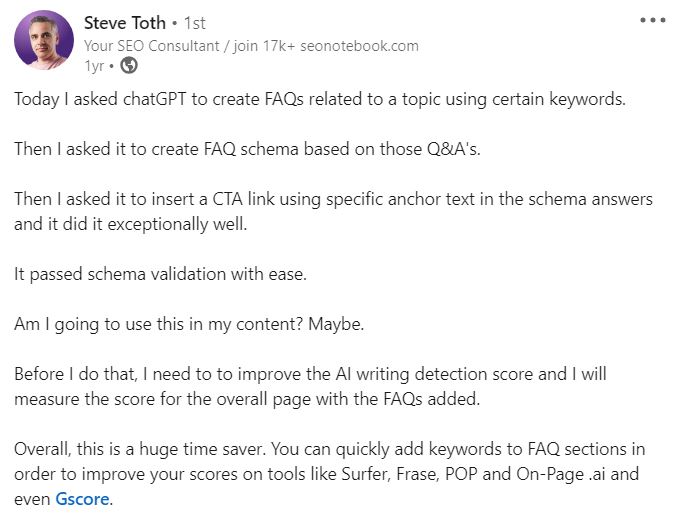
His is just one in many valuable use cases you can find on LinkedIn by typing “ChatGPT [insert SEO task]” or “AI [insert SEO task]” in the search bar.
It shouldn’t have to be mentioned, that as with content generation, using AI for SEO tasks needs a good deal of fact-checking and sensible human judgment. In fact, some use cases, such as ChatGPT 3.5 for keyword research, are downright discouraged.
ChatGPT 3.5 would be fantastic for SEO content and tasks if it was connected to the internet (a live database of up-to-date information), but it isn’t. So instead of actually useful answers, it sometimes just makes up stuff, like in this example by Mark Williams Cook:
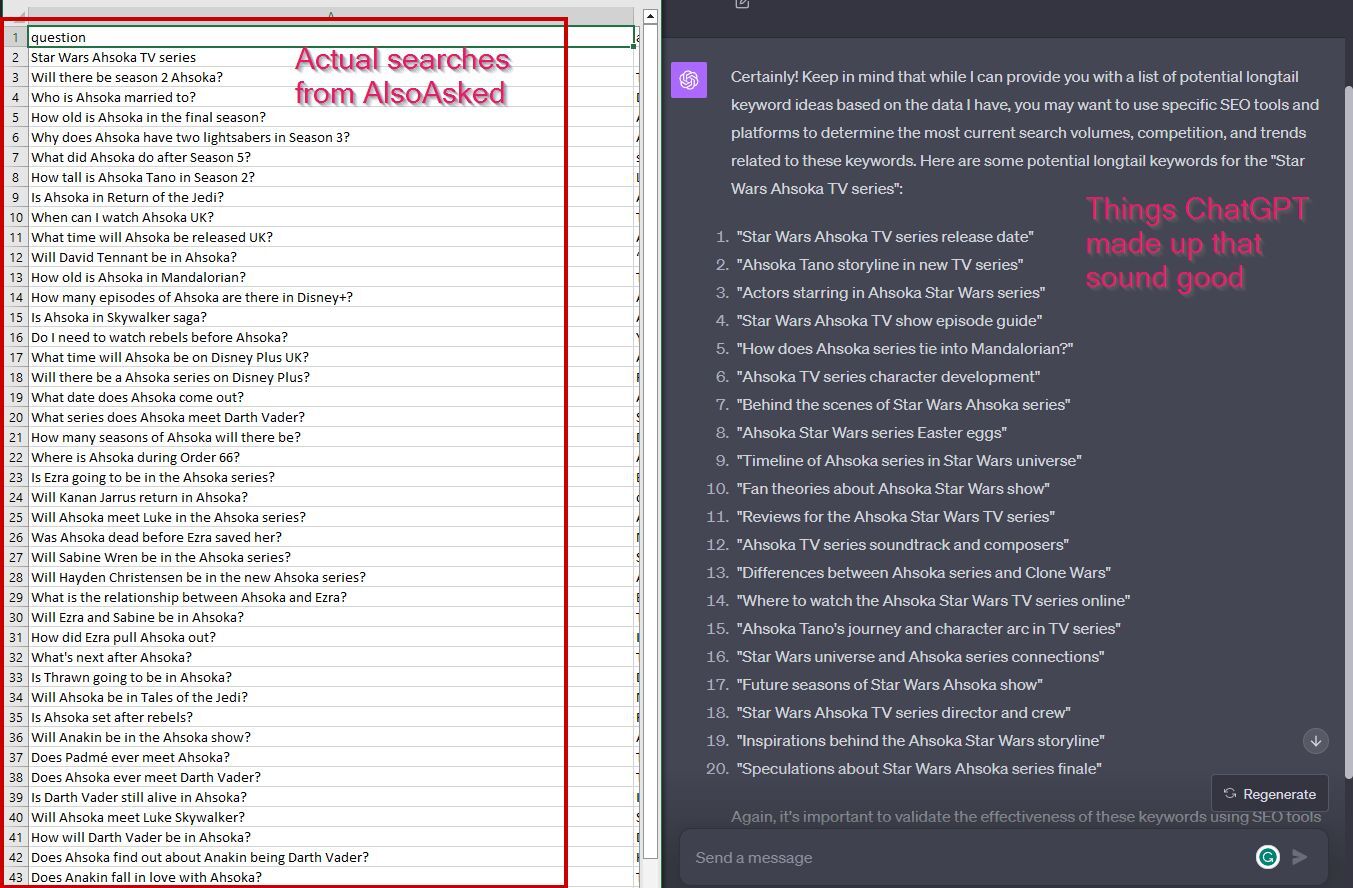
Made-up solutions like this would be harmful to your SEO in the long run.
ChatGPT 4 is expected to fill this vacuum by connecting to the internet.
Benefits of AI in Marketing
Automates Redundant Stuff
AI can handle the repetitive stuff—data entry, scheduling, templated interactions—freeing up time for the human touch.
Enhances Personalization
AI tools can help make sense of vast sets of data, like customer segments, and interpret this into actionable summaries you can act on quickly. This speeds up the time it takes to understand your audience and personalize your messaging.
Supports Customer Interactions
It’s pretty resource-intensive to have human customer service operators available 24/7. Chatbots and virtual assistants on the other hand, can always be live.
With the proper configuration, they can provide curious buyers with the right answers or guide them to useful resources. They may lack the distinct human touch consumers often crave, but it’s better than potentially losing customers to unavailability.
Cons of AI in Marketing
Lacks The Human Touch
On the other end of relying on AI chatbots are frustrated customers who’d prefer to chat with a human representative. The solution lies in striking a balance. AI bots should only operate on the fringes and for generic queries.
Consumers should interact with human reps the deeper they are in the sales funnel and the more complex their queries.
Low Content Quality
AI-generated content lacks the nuanced creativity and emotional understanding of human-created content. Plus, if you’ve tried AI-generated content, you know it often spits out pure garbage.
To address this, leverage AI to aid content creation but involve human creatives for the final touch.
Measuring Non-Quantifiable KPIs
While AI excels in quantifiable metrics, it struggles with non-quantifiable KPIs like brand perception. AI analytics tools can provide metrics on clicks and conversions but struggle to gauge the emotional impact of a marketing campaign.
Solution? Combine AI analytics with traditional methods. Surveys, feedback, and sentiment analysis provide a holistic view beyond numerical metrics. They should be core to any proper marketing strategy.
How to Use AI in Your Marketing Strategy
Start Small: Begin by incorporating straightforward AI tools like chatbots into your operations. This gradual approach allows your team to adapt organically to the benefits and functionalities that AI brings to daily tasks.
Data is King: AI is only as effective as the quality of data it processes. This is the equivalent of great AI prompts generating acceptable content and generic prompts generating bad content. Ensure a robust foundation by collecting and organizing data meticulously.
Choose the Right Tools: There’s a spectrum of AI tools available, each serving distinct marketing needs. Choose tools that match your resources, workflow, and needs.
Stay Updated: AI is evolving rapidly. Stay informed on the latest AI tools and trends to stay competitive.
Acquire The Right Talent: Whether through hiring or training, invest in individuals with AI expertise. If this means scanning for individuals with “AI prompt engineering” as a skill in their resume, go for it. A better approach will be to document your productive AI use cases or prompts. Then include these in the onboarding for new recruits.
Adhere To Data Privacy Laws: Understand and comply with data privacy laws and regulations. Upholding data privacy builds trust with your audience and safeguards your business against legal complications.

